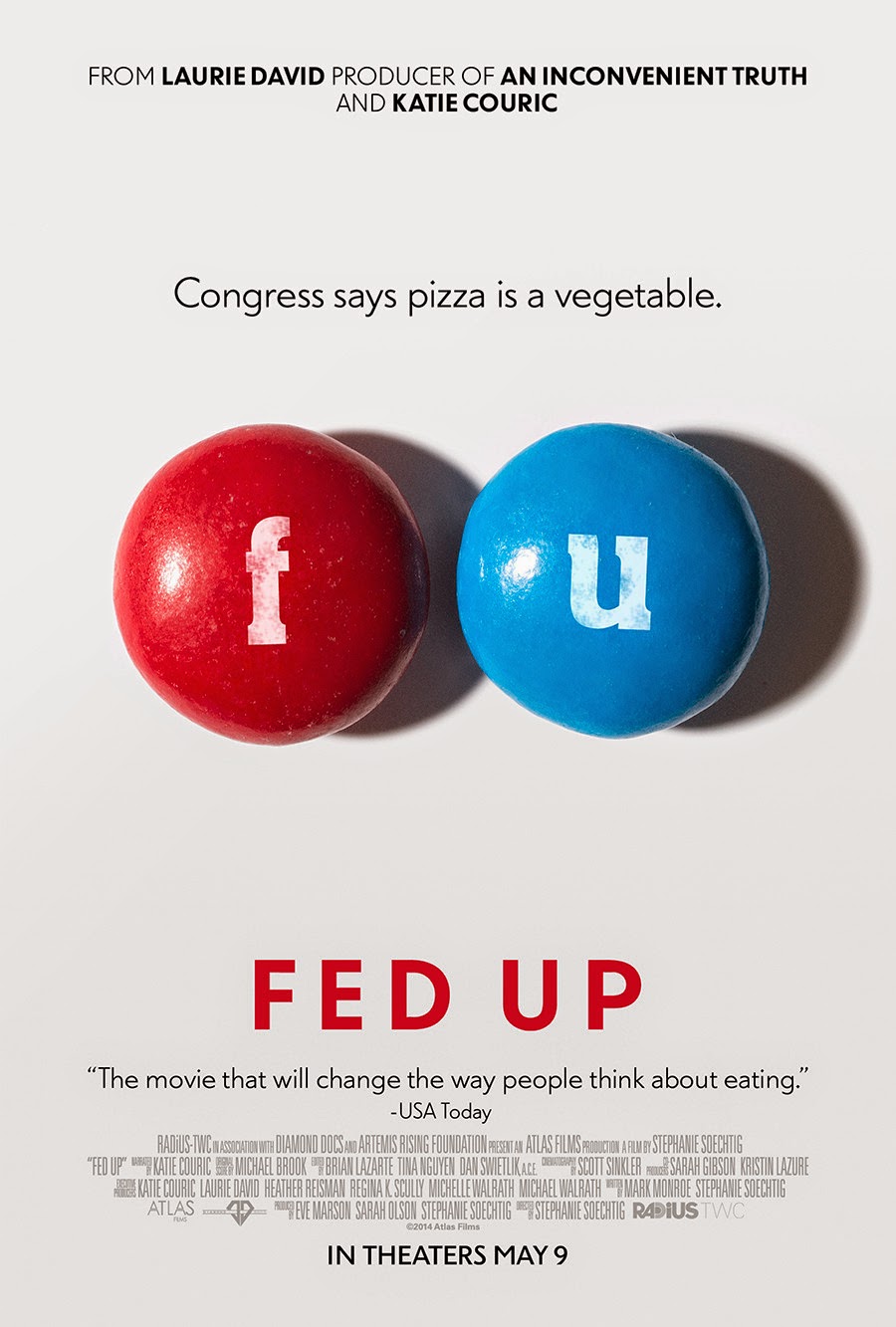Fed Up.
Probably the most scary film released this Halloween...
This review is also up at Channel 24
This review is also up at Channel 24
What it's about
A documentary
about how people eat too much sugar and how the food industry
contributes to this unhealthy habit.
What we thought
Fed Up is a movie
that has something very important to say about our diets, our
understanding on health and weight-loss and about how the
international food industry is not necessarily working in the best
interests of the public. Unfortunately, it's also a movie that uses
shock sensationalism to make its point and the picture it paints is
so dire that rather than having the intended effect of having its
audience want to change their dietary habits, it's bound to leave
them dejected and demoralized with an overall sense of powerlessness
to make any real change in their lives.
On the positive
side, what we have here is a film that deals quite extensively with
what is clearly a very real problem that affects the daily lives of
billions of people. Whether it exaggerates its point or not, it is
clearly a very well researched and well reasoned examination of how
human beings are currently consuming far more sugar than their bodies
know what to do with.
Scientists, health
care professionals and former presidents are extensively interviewed
on their views of the so-called “sugar pandemic” and Fed Up takes
a look at everything from school lunches to processed food to try and
understand what it is we're dealing with here. Perhaps most
importantly, it also takes a long, hard look at how the seemingly
endless political and economic power of the food industry basically
allows it to do whatever they want – and what they want, far more
than anything else, certainly far more than insuring the health of
their customers, is to make as much money as is humanly possible.
There's no
doubting the veracity of much of what the film has to say – the
staggering obesity and obesity-related-illness rates kind of speak
for themselves – and you certainly can't fault its intentions but,
unfortunately, Fed Up often undermines itself, both through some of
the points it makes and as a piece of filmmaking.
It's interesting
that John Oliver in his brilliant HBO series, Last Week Tonight,
dealt with the very subject of the “sugar pandemic” this very
week (it will show this upcoming weekend on DSTV and is available now
on YouTube) but his sixteen-odd-minute feature packed the sort of
scabrously funny punch that Fed Up desperately needed but sadly
lacked. Unfortunately, there is a certain dryness about Stephanie
Soechting's presentation of these same facts that make Fed Up a bit
of a chore to sit through at times – and this is especially a
problem considering how sensitive its subject so obviously is.
But that leads us
to the film's biggest problem by far. Presumably the point of Fed Up
is to elicit change in its audience to how they approach their diet
but it undercuts this first by first placing much of the blame on
outside forces (the food industry, schools, politicians) and then by
showing how little the average person can actually do about this.
Sugar is everywhere and as long as you buy anything but the freshest
produce, you're never going to escape it!
It
does, in its final section, present a radical shift from processed
food to homemade cooking as a solution to much of the problems that
it raises in the film but unfortunately it really is too little, too
late. Considering how radical a change this would be for most people
– especially those living in the highly pressurised Western World
of the 21st
century – it doesn't spend nearly enough time dealing with what a
shift away from all processed food actually means and this entire
“solution” is presented so off-handedly that it makes next to no
impact in the face of the shocking horrors that precedes it.
Unfortunately,
though it is undoubtedly worth becoming acquainted with the subjects
that Fed Up deals with, the film itself may not ultimately be the way
to do so. Its heart is very clearly in the right place but it
unfortunately seems destined to scare away people from the very thing
it's driving them towards.


Comments
Post a Comment